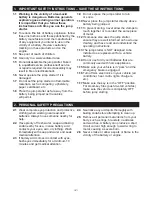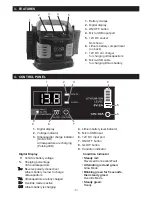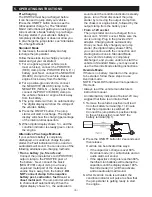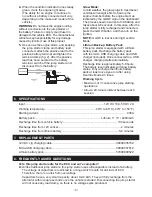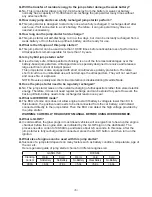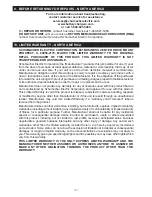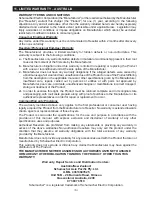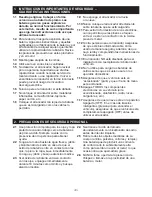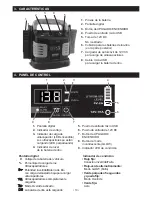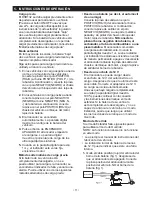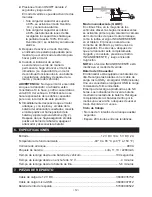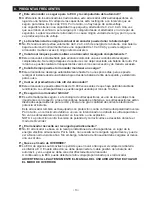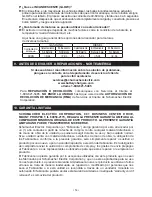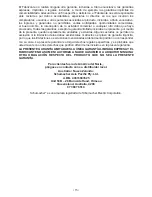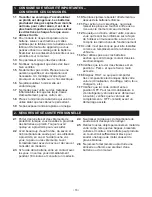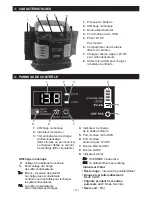
• 2 •
1. IMPORTANT SAFETY INSTRUCTIONS – SAVE THESE INSTRUCTIONS.
1.1 Working in the vicinity of a lead-acid
battery is dangerous. Batteries generate
explosive gases during normal operation.
It is important that you follow these
instructions each time you use the jump
starter.
1.2
To reduce
t
he risk of battery explosion, follow
these instructions and those published by the
battery manufacturer and the manufacturer
of any equipment you intend to use in the
vicinity of a battery. Review cautionary
marking on these products and on the
engine.
1.3
Keep out of reach of children.
1.4
Use only in a well-ventilated area.
1.5
Do not disassemble the jump starter. Take it
to a qualified service professional if service
or repair is required. Incorrect assembly may
result in fire or electrical shock.
1.6
Never operate the jump starter if it is
damaged.
1.7
Do not set the jump starter on flammable
materials, such as carpeting, upholstery,
paper, cardboard, etc.
1.8
Place the jump starter as far away from the
battery being jumped as the cables
will permit.
1.9
Do not expose the jump starter to rain
or snow.
1.10
Never place the jump starter directly above
battery being jumped.
1.11
To prevent arcing, never allow the clamps to
touch together or to contact the same piece
of metal.
1.12
If someone else uses the jump starter,
ensure they are well informed on how to use
it safely, and have read and understood the
operating instructions.
1.13
The jump starter is NOT designed to be
installed as a replacement for a vehicle
battery.
1.14
Do not use for dry cell batteries that are
commonly used with home appliances.
1.15
Make sure your vehicle is in “park” and the
emergency brake is engaged.
1.16
Turn off ALL electronics in your vehicle (air
conditioner, heat, radio, lights, chargers,
etc.).
1.17
Make sure the key is in the “OFF” position.
For smart-key fobs (push-to-start vehicles),
make sure the vehicle is completely OFF
before jump starting.
2. PERSONAL SAFETY PRECAUTIONS
2.1
Wear complete eye protection and protective
clothing when working near lead-acid
batteries. Always have someone nearby for
help.
2.2
Have plenty of fresh water, soap and baking
soda nearby for use, in case battery acid
contacts your eyes, skin, or clothing. Wash
immediately with soap and water and seek
medical attention.
2.3
If battery acid comes in contact with eyes,
flush eyes immediately for a minimum 10
minutes and get medical attention.
2.4
Neutralize any acid spills thoroughly with
baking soda before attempting to clean up.
2.5
Remove all personal metal items from your
body, such as rings, bracelets, necklaces
and watches. A battery can produce a short
circuit current high enough to weld a ring to
metal, causing a severe burn.
2.6
Never smoke or allow a spark or flame in the
vicinity of the battery or engine.
1. IMPORTANT SAFETY INSTRUCTIONS


